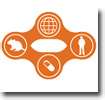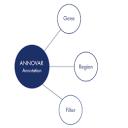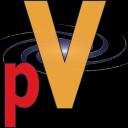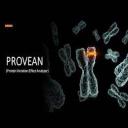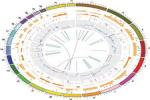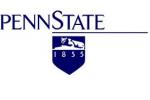NOVELTIES

Add to my favorites
Remove from my favorites
Category: Cancer research, Other topics
Subcategories: Broad
The Connectivity Map uses computer algorithms and genome-wide expression data to explore the connection between diseases, genes, and drugs. Cmap is a collection of genome-wide transcriptional expression data from cultured human cells treated with bioactive small molecules and simple pattern-matching algorithms that together enable the discovery of functional connections between drugs, genes and diseases through the transitory feature of common gene-expression changes. The aim of theConnectivity Map project is to provide a systematic solution for the discovery of the type of functional connections between drugs, genes and diseases. Registration required.
Click here for more informationsPublished on 2012-02-24 10:27:50
The Diversity Outbred (DO) stock from JAX is a genetically diverse mouse resource and may be used as a tool for high resolution genetic mapping and validation of previously identified quantitative trait loci (QTLs) linked to disease susceptibility, drug resistance or behavioral phenotypes. It represents 45 million single nucleotide polymorphisms (SNPs) and 4 million copy number variations. Registration not required.
Click here for more informationsPublished on 2012-02-24 10:18:47

Add to my favorites
Remove from my favorites
International Knockout Mouse Consortium
Category: Laboratory animals
The International Knockout Mouse Consortium (IKMC) is a scientific endeavour to produce a collection of mouse lines, each lacking a protein-coding gene, using a combination of gene trapping and gene targeting in C57BL/6 mouse embryonic stem (ES) cells.(M Ringwald, Nucleic Acid Res 39, D849, 2011). Registration not required.
Click here for more informationsPublished on 2012-02-24 10:11:16
The IMPC envisages a ten year programme to undertake a broad-based, systematic genome-wide phenotyping project of knockout mice generated from the embryonic stem cell mutant resources developed by the International Knock-out Mouse Consortium (IKMC). It will produce knockout animals for each gene and analyze the phenotypic changes. Registration not required.
Click here for more informationsPublished on 2012-02-24 10:10:16
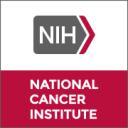
Add to my favorites
Remove from my favorites
Category: Cancer research, Biomedical funding and jobs
Subcategories: Funding
The Provocative Questions initiative from NCI asks investigators to propose important but non-obvious questions in cancer research that need attention but would usually find it difficult to get.NCI has issued a request for applications and provisionally set aside US$15 million from the budget for fiscal year 2012 to support the best ideas for answering any of the questions chosen from a list of 24. Registration not required.
Click here for more informationsPublished on 2012-02-21 11:23:06
The open source ISA metadata tracking tools facilitates standards compliant collection, curation, local management and reuse of datasets in an increasingly diverse set of life science domains. Built around the ‘Investigation’ (the project context), ‘Study’ (a unit of research) and ‘Assay’ (analytical measurement) metadata categories, the tools are designed to manage studies employing one or a combination of technologies. Registration required.
Click here for more informationsPublished on 2012-02-13 06:00:00
The ISA Commons is a growing community that uses the ISA metadata tracking framework to facilitate standards-compliant collection, curation, management and reuse of datasets in an increasingly diverse set of life science domains Registration required.
Click here for more informationsPublished on 2012-02-13 05:57:29
HaploReg is a tool for exploring annotations of the noncoding genome at variants on haplotype blocks, such as candidate regulatory SNPs at disease-associated loci. It brings together data from chromatin-mapping and comparative-genomics studies. Researchers can enter common variants and see whether they fall in a highly conserved region, disrupt a regulatory motif or are associated with a regulatory element in a particular cell type. It provides the same information for common variants that tend to be inherited along with the ones entered. Registration not required.
Click here for more informationsPublished on 2012-02-12 12:13:34
RegulomeDB identifies binding sites and other elements in non-coding DNA.Use RegulomeDB to identify DNA features and regulatory elements in non-coding regions of the human genome by entering dbSNP IDs, Single nucleotides, a chromosomal region. Registration not required.
Click here for more informationsPublished on 2012-02-12 12:07:54
ANNOVAR: Functional annotation of genetic variants from high-throughput sequencing data. ANNOVAR is an efficient software tool to utilize update-to-date information to functionally annotate genetic variants detected from diverse genomes (including human genome hg18, hg19, as well as mouse, worm, fly, yeast and many others).ANNOVAR is written in Perl and can be run as a standalone application on diverse hardware systems where standard Perl modules are installed. Registration not required.
Click here for more informationsPublished on 2012-02-12 11:46:27
VAAST (the Variant Annotation, Analysis and Search Tool) is a probabilistic search tool for identifying damaged genes and their disease-causing variants in personal genome sequences. VAAST can score both coding and non-coding variants, evaluating the cumulative impact of both types of variants simultaneously. VAAST can identify rare variants causing rare genetic diseases, and it can also use both rare and common variants to identify genes responsible for common diseases. Registration required.
Click here for more informationsPublished on 2012-02-12 11:39:11
PROVEAN (Protein Variation Effect Analyzer) is a software tool which predicts whether an amino acid substitution or indel has an impact on the biological function of a protein. PROVEAN is useful for filtering sequence variants to identify nonsynonymous or indel variants that are predicted to be functionally important. The performance of PROVEAN is comparable to popular tools such as SIFT or PolyPhen-2. Registration not required.
Click here for more informationsPublished on 2012-02-12 11:36:27
PHAST is a freely available software package (Cornell University) for comparative and evolutionary genomics. It consists of about half a dozen major programs, plus more than a dozen utilities for manipulating sequence alignments, phylogenetic trees, and genomic annotations (see left panel).Like algorithms that assess protein-coding genes, they evaluate variants on the basis of how often the sequence changes between species
Click here for more informationsPublished on 2012-02-12 11:36:03
Genomic Evolutionary Rate Profiling (GERP) identifies constrained elements in multiple alignments by quantifying substitution deficits. These deficits represent substitutions that would have occurred if the element were neutral DNA, but did not occur because the element has been under functional constraint. We refer to these deficits as "Rejected Substitutions". Registration not required.
Click here for more informationsPublished on 2012-02-12 11:35:31
SIFT (Sorting Intolerant From Tolerant) predicts whether an amino acid substitution affects protein function based on sequence homology and the physical properties of amino acids. SIFT can be applied to naturally occurring nonsynonymous polymorphisms and laboratory-induced missense mutations. Registration not required.
Click here for more informationsPublished on 2012-02-12 11:34:14
Report on Carcinogens, U.S. Department of Health and Human Services, Public Health Service, National Toxicology Program . Registration not required.
Click here for more informationsPublished on 2012-02-02 04:52:32
Circos is a software package for visualizing data and information. It visualizes data in a circular layout — this makes Circos ideal for exploring relationships between objects or positions. Although originally designed for visualizing genomic data, it can create figures from data in any field. It requires PERL software language. Registration not required.
Click here for more informationsPublished on 2012-01-20 10:25:05

Add to my favorites
Remove from my favorites
Category: Biomedical funding and jobs
Subcategories: Jobs , Fellowships
Here you can view the current vacancies and find all of the information you need about working for the University of Cambridge, UK Registration not required.
Click here for more informationsPublished on 2012-01-20 04:10:11
The GSEA algorithm implemented in MeV is a computational method that determines whether an a priori defined set of genes shows statistically significant, concordant differences between two biological states (e.g. phenotypes). GSEA software uses the Molecular Signatures Database (MSigDB), a collection of annotated gene sets. Registration required.
Click here for more informationsPublished on 2012-01-18 08:55:04
Galaxy is an open, web-based platform for data intensive biomedical research, now available as a "cloud computing" resource Whether on this free public server or your own instance, you can perform, reproduce, and share complete analyses. Registration required.
Click here for more informationsPublished on 2012-01-18 06:35:45


